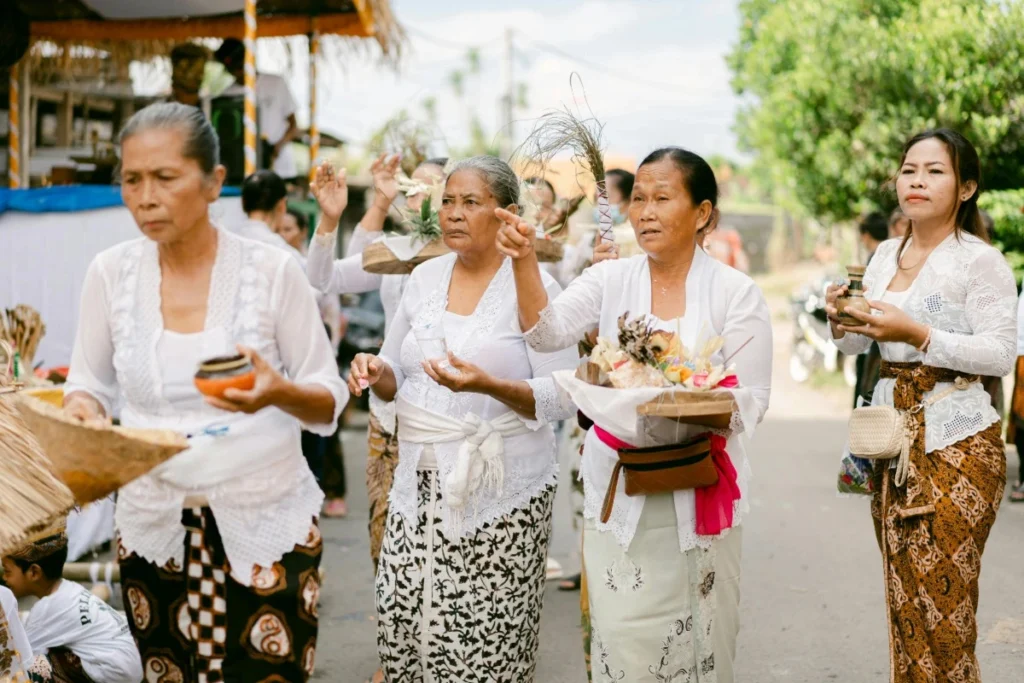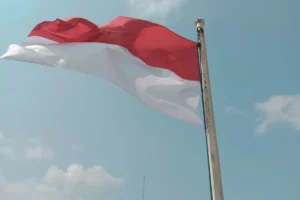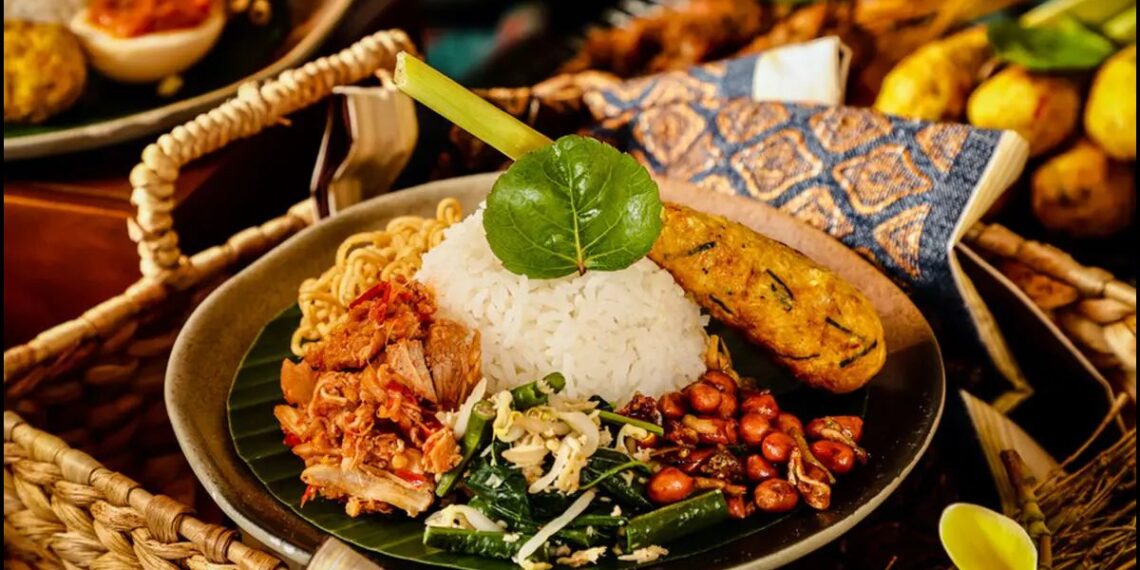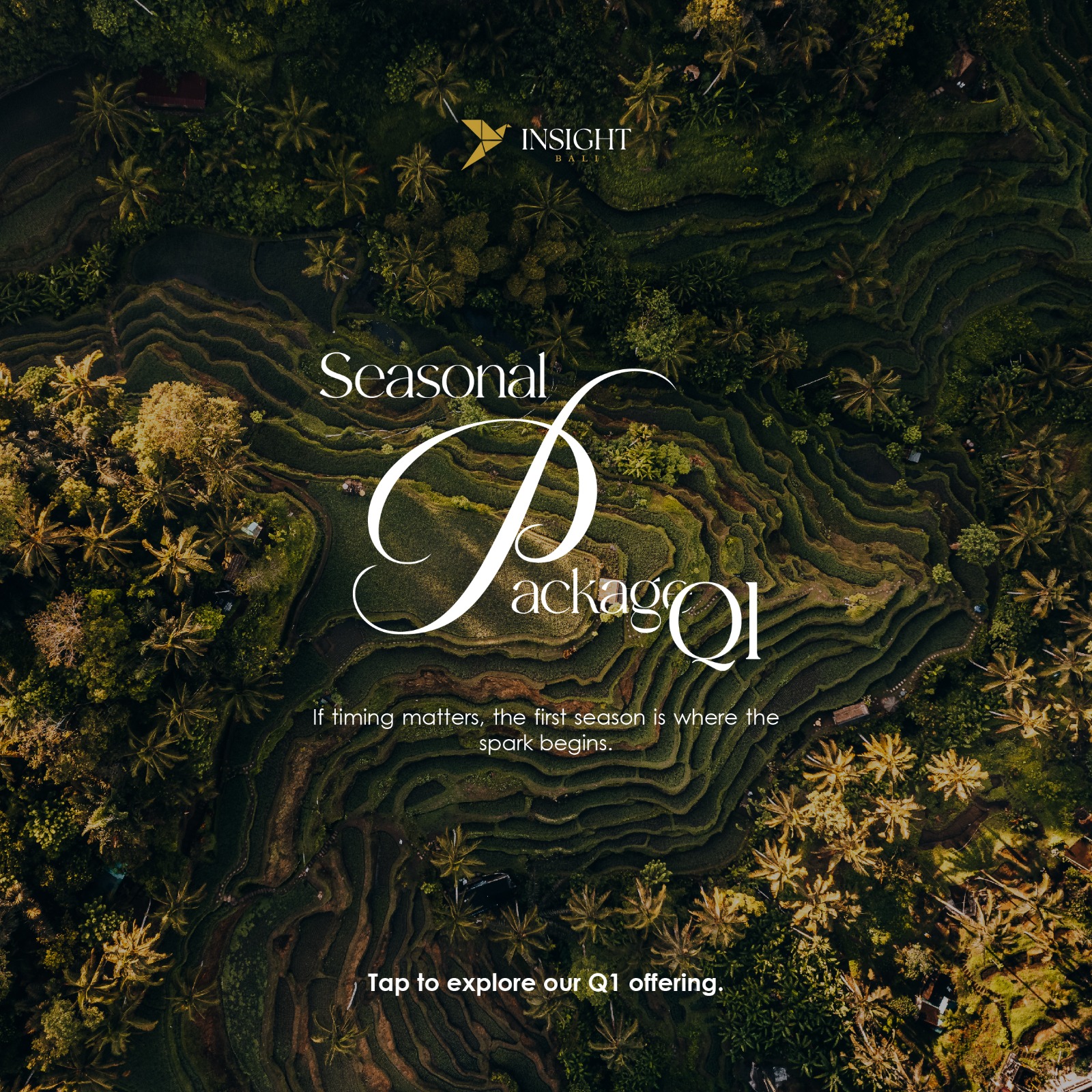Part of our “Meet IN” series: A gentle spotlight on people behind the island’s soul.
Across Bali and the surrounding archipelago, weaving is more than tradition — it’s a spiritual act of storytelling. From the double ikat of Tenganan to the lontar crafts of Flores, it’s women who carry these threads — stitch by stitch, generation by generation. Here’s how three communities are preserving (and evolving) these living legacies.
Table of Contents
ToggleTenganan Pegringsingan: A Sacred Weave
In the quiet village of Tenganan Pegringsingan, East Bali, weaving is ritual. Here, women are the sole artisans permitted to craft geringsing — Bali’s rare double ikat textile. Made with natural dyes from red bark and indigo, the process can take months, sometimes years. Each pattern holds spiritual significance, used in ceremonies that link the body to the divine.
The traditional backstrap loom ties the weaver to her cloth — a literal and symbolic connection to her lineage. It’s not just craft; it’s continuity.

Sanggar Biboki: Innovation with Ancestral Roots
Far from Bali, in West Timor, Sanggar Biboki has woven together tradition and social empowerment. Founded by Yovita Meta in the 1990s, the initiative revitalized ikat weaving among over 400 women — introducing modern aesthetics without losing spiritual essence. The result is an evolving visual language that bridges the sacred and the contemporary.
Their workshops don’t just teach patterns, they nurture pride. In every woven strand, there’s a story of dignity restored.
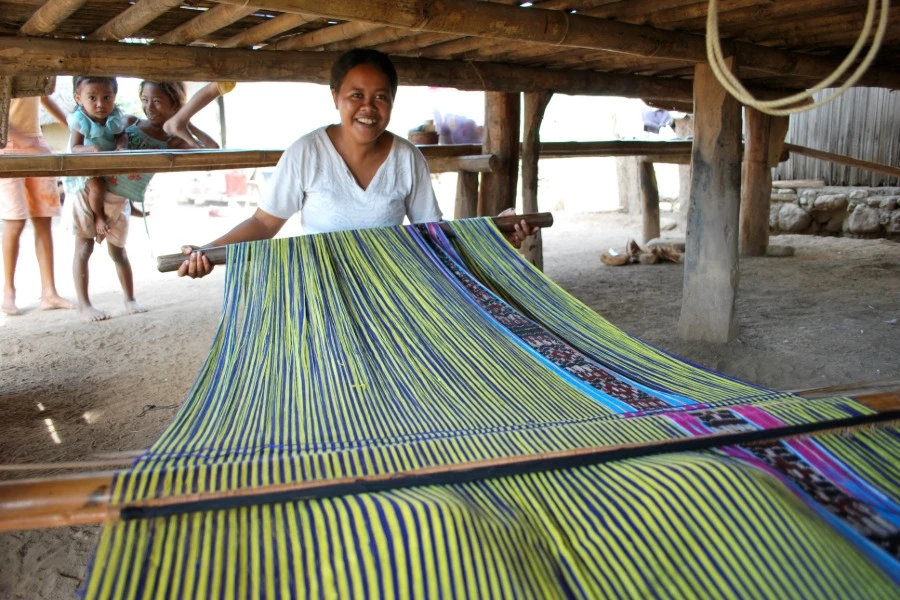
Crafting Connection for a Global Audience
Born in Flores and rooted in impact, Du Anyam turns traditional weaving into global design. Using locally sourced lontar leaves, their artisans create everything from baskets to placemats — each woven with intention. The brand not only empowers women economically, but also shares Indonesia’s rich heritage with the world.
Their work has been featured at IKEA, at the G20 Bali Summit, and in homes far beyond the islands — proof that slow craft still speaks volumes.
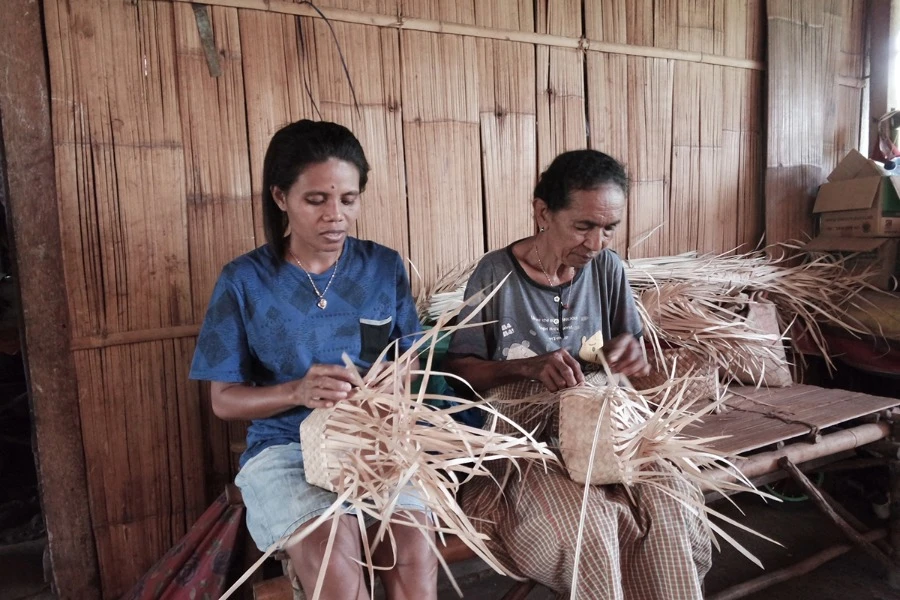
Woven Wisdom
Together, these women — from Bali to Timor to Flores — aren’t just preserving heritage. They’re evolving it. In their hands, weaving becomes a form of resilience, resistance, and renewal. A reminder that the threads of culture are strongest when held by those who live it, breathe it, and pass it on.


